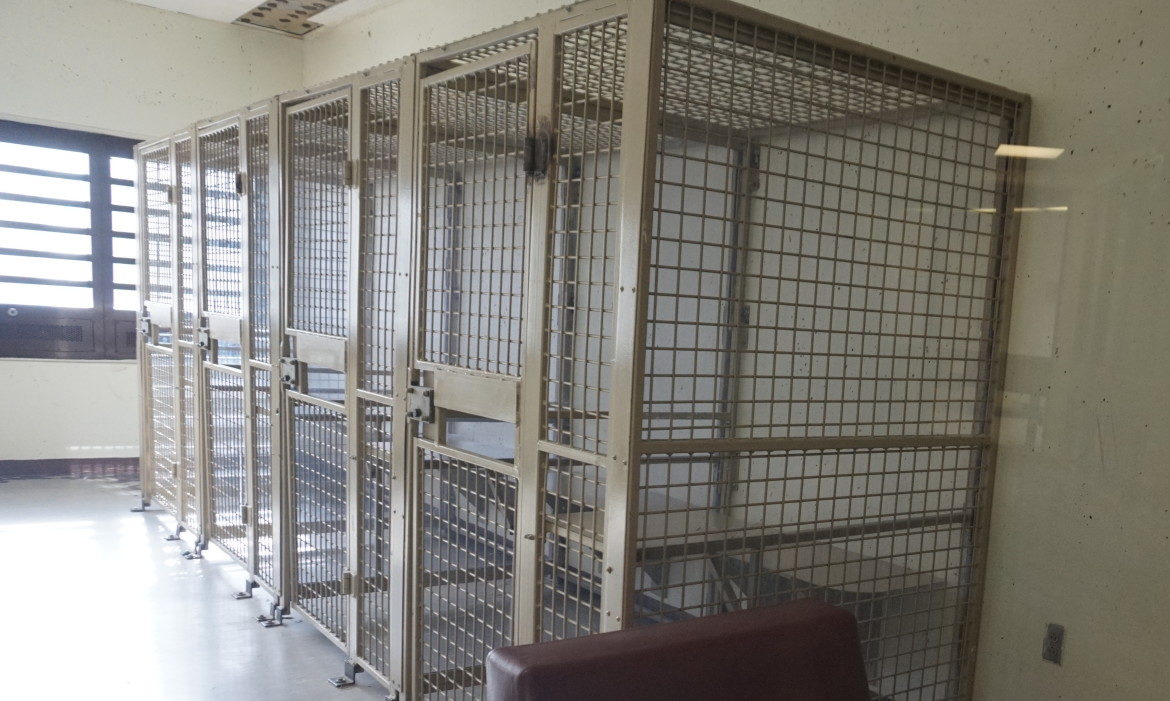By Nancy West, InDepthNH.org
CONCORD – When registered nurse Beatrice Coulter resigned just four days after being hired at the Secure Psychiatric Unit at the men’s prison, little did she know that her disgust with the state’s treatment of the mentally ill men and women housed there would someday give rise to reform.
Coulter of Concord teamed up with Wanda Duryea, a criminal justice reform advocate from Farmington, three years ago. They joined forces with state Rep. Renny Cushing, D-Hampton, who’s been fighting for change at the prison psych unit for years and activist Arnie Alpert. Now, it looks like reform may well be on the horizon.
The state is looking into building a 100-bed forensic psychiatric hospital to replace the prison unit and take the pressure off hospital emergency rooms where patients sometimes wait for weeks for a psychiatric bed. Gov. Chris Sununu and his Democratic opponent, Molly Kelly, both recently voiced support for the project after decades of inaction. Rep. Cushing is already drafting new legislation.
“I never saw this as a win or lose situation. What I saw this as was exactly that – reform,” said Coulter, a nurse since 1981 who has never before been an activist.
Back in May of 2015, Coulter left the new prison job horrified that women were being held at the men’s prison, furious that civilly committed individuals who hadn’t committed a crime were locked up with mentally ill convicted criminals and stunned by the telephone booth sized cages used as “therapy booths.”

Nancy West photo
Therapy booths at the Secure Psychiatric Unit at the men’s prison in Concord.
“I had never seen anything like that, the oxymoron, a cage being called a ‘therapy booth.’ It was not a hospital,” Coulter said.
Speaking out
What changed involved people like  Rep. Renny Cushing, D-Hampton[/caption]
Rep. Renny Cushing, D-Hampton[/caption]
The population served would include civilly committed individuals found not guilty by reason of insanity, incompetent to stand trial, patients deemed too dangerous to themselves or others to be housed in the state’s psychiatric hospital, forensic patients that are also diagnosed with developmental disability, and others who would benefit from a comprehensive forensic program.
Cushing also credited a flurry of federal lawsuits filed in recent months complaining about the lack of mental healthcare and mistreatment such as the use of tasers and pepper spray on patients at the prison psych unit.
There have been a half dozen petitions filed demanding Secure Psychiatric Unit patients be transferred to a licensed psychiatric hospital, a federal lawsuit alleging patient mistreatment including tasering, and patient families fighting the state’s attempts to take away their guardianship.
Andrew Butler’s case also drew public attention as the popular former high school athlete’s friends rallied around him. The 21-year-old from Hollis was released from the Secure Psychiatric Unit in June, but is still under the control of the state because he was originally civilly committed to the New Hampshire Hospital for two years. He had not committed a crime, but was transferred from the hospital to the prison unit after a violent episode.
Cushing’s proposed legislation would transfer the Secure Psychiatric Unit from the Department of Corrections to the Department of Health and Human Services, directing the Commissioner to oversee development of plans and construction of a secure forensic psychiatric hospital.
It directs the formation of an advisory commission to include department heads, lawmakers, advocacy groups and members of the public, and includes the relatively new group Advocates for the Ethical Treatment of Mental Illness.
Cushing asked that state Sens. Kevin Avard and Martha Hennessey be added as co-sponsors along with Reps. Peter Schmidt and Mary Beth Walz.
Advocate concern
Advocate Wanda Duryea, too, is cautiously optimistic. She talks by phone almost every day with patients who are being held in the Secure Psychiatric Unit and their families.
Duryea is concerned about how long it will take to fund and build a new facility and what will happen to the patients in the meantime. She listens daily to their complaints of mistreatment.
“This is the second time I was told by a patient that the guards took away his colored pencils as a punishment,” Duryea said.
Mentally ill and developmentally disabled people are sometimes incapable of following the guards’ orders, she said.
“That’s all he enjoys in the world, his colored pencils,” Duryea said.





